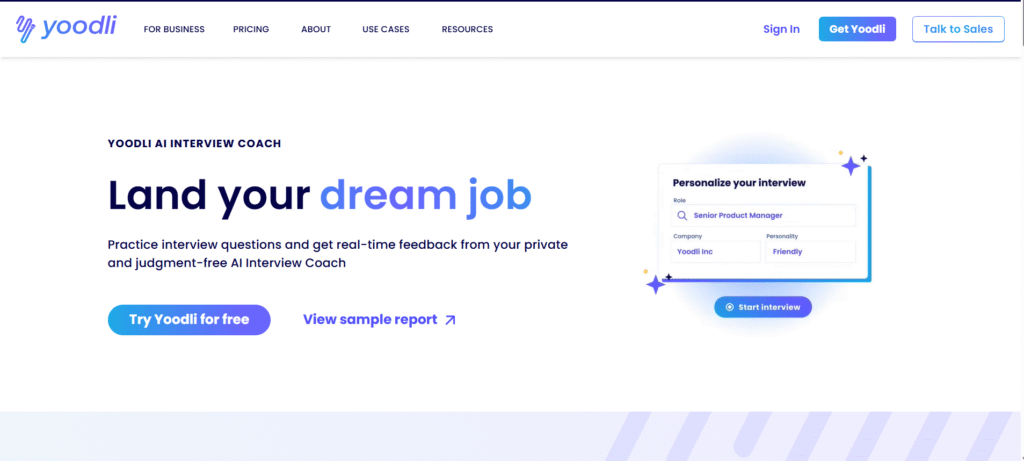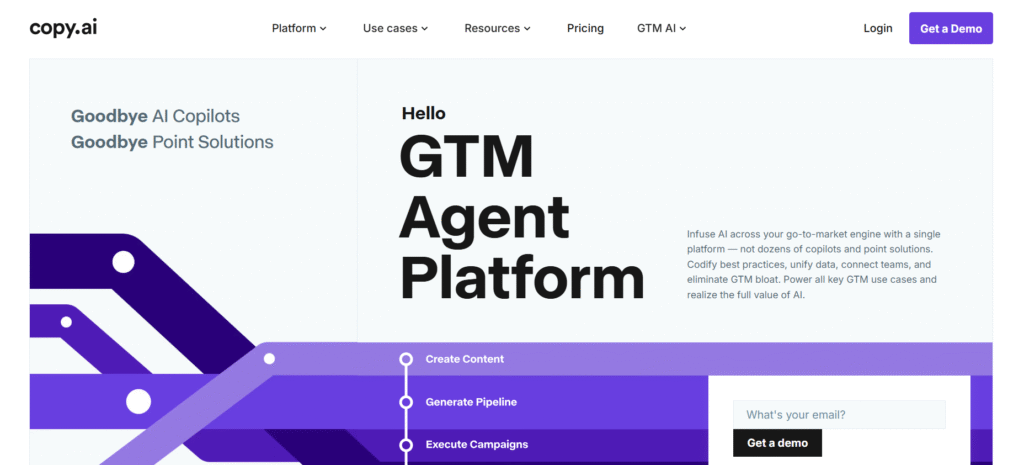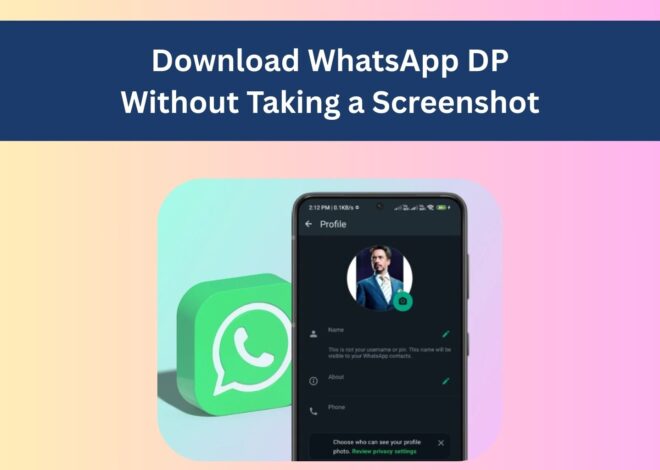
5 Proven Techniques of Using AI to Get Job Interviews Faster (Step-by-Step Guide)
In today’s fast-changing job market, simply uploading your resume to a few websites and hoping for a response is no longer enough. With thousands of people applying for the same roles, the competition is tougher than ever before. To truly stand out, you need more than qualifications you need a smart approach, a clear strategy, and the right set of tools to help you shine.
This is where Artificial Intelligence (AI) can play a game-changing role in your job search. From writing a resume that grabs recruiters’ attention to practicing interview questions, AI tools can speed up your job hunt, improve your application quality, and connect you with better opportunities.
In this step-by-step guide, you’ll discover five effective and easy-to-follow ways to use AI that will help you get noticed faster, impress employers, and get closer to landing your ideal job.
1. Craft a Job-Winning Resume with AI Assistance
Why this is important:
In a competitive job market, your resume is your first impression and often, your only chance to catch a recruiter’s attention. Hiring managers scan through hundreds of resumes every week, and most of them are filtered by Applicant Tracking Systems (ATS) before a human even sees them. If your resume doesn’t contain the right keywords or structure, it may get automatically rejected.
That’s where AI-powered resume tools can give you a major advantage. These tools analyze job descriptions and help you craft a resume that’s specifically designed to pass ATS filters and stand out to recruiters.
How to do it (Step-by-Step):
- Choose an AI-based resume builder like Resume.io, or Kickresume.
- Upload your existing resume and the job description of the role you want to apply for.
- The AI tool will scan both documents and highlight missing keywords, skills, and experience that match the employer’s requirements.
- Update your resume based on the AI’s suggestions, and use the platform’s templates to format your resume with a clean, professional layout.
- Review and personalize your resume before submitting it to make sure it sounds natural and highlights your unique achievements.
Also Watch :
Pro Tip:
AI can help you optimize structure and keywords, but don’t just copy and paste suggestions blindly. Always inject your personal voice, real results, and human touch to make the resume authentic. A robot might get you through the first stage, but a human will read it next so make it feel genuine.
2. Get Smart, Personalized Job Suggestions
Why this is important:
Job hunting can feel overwhelming especially when you’re spending hours scrolling through endless listings that don’t match your goals or skill set. But now, thanks to AI, you don’t have to waste time chasing the wrong opportunities. Smart job-matching tools powered by AI can analyze your profile and suggest roles that truly fit your experience, strengths, and preferences.
These platforms use machine learning to study your skills, past roles, interests, and even location then match you with relevant job openings that you might have missed otherwise.
How to do it (Step-by-Step):
- Update your LinkedIn profile with your most recent experience, certifications, and skill sets. Make sure everything is accurate and clearly written.
- Turn on LinkedIn Job Alerts, which notify you when a job matching your profile is posted.
- Explore AI-powered platforms like Careerflow.ai that offer smart job recommendations based on your resume and preferences.
- Let these tools analyze your data and deliver targeted job suggestions saving you time and helping you focus only on relevant openings.
- Check your job matches regularly, and apply to roles where you meet most or all of the qualifications.
Must Watch:
Pro Tip:
Your job suggestions are only as good as your profile. Keep your online profiles fresh and relevant by updating them with industry-specific keywords, skills, and tools that employers are currently looking for. The more accurate and up-to-date your information, the better the AI can match you with high-quality opportunities.
3. Practice Interviews with AI-Based Coaching
Why this is important:
Even the most qualified candidates can stumble during an interview due to nervousness or lack of preparation. And in today’s job market, you often get just one chance to impress. This is where AI-powered interview coaching tools can make a huge difference.
These platforms allow you to practice common and role-specific interview questions, improve your communication, and even get feedback on your voice, tone, pace, and body language especially helpful for virtual interviews. The more you practice, the more confident and polished you’ll appear when it matters most.
How to do it (Step-by-Step):
- Choose AI-based interview coaching platforms such as Yoodli, RightJoin.
- Use these tools to simulate mock interviews. Some use video to analyze your facial expressions and posture, while others assess your voice clarity, vocabulary, filler words, and delivery style.
- Try practicing with AI chat tools like ChatGPT or Microsoft Copilot. Ask them to role-play as an interviewer and answer job-specific or behavioral questions using the STAR method which stands for Situation, Task, Action, and Result.
- Repeat sessions until your answers sound clear, structured, and confident.
You Can Try : Yoodli

Pro Tip:
Always record your mock interviews and watch the playback. Pay close attention to your tone, speed, eye contact, and any nervous habits. Use this self-review to improve and fine-tune your responses. With regular practice, you’ll start sounding natural, professional, and ready for real-world interviews.
4. Write Compelling Cover Letters in Minutes
Why this is important:
While your resume shows what you’ve done, a well-written cover letter tells employers why you care. It gives you the chance to express your personality, explain your motivation, and directly address how you can contribute to the company. But writing a tailored cover letter for every job can be time-consuming.
This is where AI writing tools like ChatGPT come in. They can generate a professional, personalized cover letter in just a few minutes based on your resume, the job description, and your specific goals. All you need to do is fine-tune it to sound more like you.
How to do it (Step-by-Step):
- Open a writing tool like ChatGPT, Copy.ai.
- Provide the tool with three things:
- Your resume or work history
- The job description of the role you’re applying for
- A few bullet points about why you’re interested in this specific job or company
- Ask the AI to generate a customized cover letter based on that information.
- Carefully review the output. Edit the tone and wording to reflect your real voice, goals, and personality.
- Add details that show you’ve done your research—such as the company’s mission, recent projects, or values that align with yours.
You Can Try : Copy.ai

Pro Tip:
Never send the AI-generated letter as-is. Always personalize it with something specific about the company or role like a recent achievement, a value they stand for, or why their work inspires you. This shows genuine interest and separates you from candidates who send generic applications.
5. Use AI Tools to Research Salary Ranges and Negotiate Better
Why this is important:
Many job seekers struggle when it comes to the topic of salary. You may worry about asking for too much and losing the opportunity or asking for too little and undervaluing yourself. The truth is, understanding your market value is key to negotiating fair compensation. With the help of AI-powered salary tools, you can access reliable, real-time salary data that reflects your role, experience, and location.
These insights not only help you ask for the right salary but also prepare you for conversations about bonuses, benefits, and overall compensation packages.
How to do it (Step-by-Step):
- Visit trusted salary research platforms like Payscale or Salary.com.
- Input accurate details including:
- Your job title
- Years of experience
- Location
- Industry or company size
- The AI will analyze your data and provide:
- A salary range (low, average, and high)
- Comparison with similar roles
- Insights into bonuses, benefits, and total compensation trends
- Use these numbers as a reference when filling out applications or during interview discussions.
Pro Tip:
When a recruiter asks, “What are your salary expectations?”, don’t guess. Refer to the data you’ve gathered to respond confidently and professionally. Mentioning that your expectations are based on market research for your role and location shows that you’re informed, realistic, and serious about the opportunity.
Final Words
AI won’t magically get you a job but it can definitely speed up the process, improve your applications, and help you feel more prepared. Whether you’re just starting your career or trying to level up, using AI smartly can make a big difference.
Start applying these techniques today. Your next interview opportunity might be just one optimized resume or mock interview away!
FAQs :
1. Can AI tools completely replace the need for human effort in the job search process?
No, AI tools are designed to support not replace your job search efforts. They help automate repetitive tasks, improve accuracy, and save time. However, it’s still important to personalize your applications, do company research, and prepare mentally for interviews.
2. Are AI resume and interview tools free to use?
Many platforms offer free versions with basic features, such as Resume.io or Glassdoor. However, advanced tools like Interviewer.AI may require a paid plan for full access to premium templates, deep keyword analysis, or mock interview feedback.
3. How accurate are AI-generated job recommendations?
AI-based job matching tools use algorithms to find roles based on your profile, skills, and preferences. They are often highly accurate but only if your profile is complete and up to date. You should still manually review job descriptions before applying.
4. Can I use AI to prepare for technical or role-specific interviews?
Yes. AI tools like ChatGPT or Microsoft Copilot can help you practice technical questions, role-specific scenarios, or even behavioral questions using the STAR method. You can also ask them to simulate interviewers and provide sample answers.
Thanks For Visiting primehighlights.com



